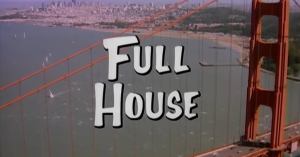The Chiquita Banana mascot is one of the many corporate logos that’s come under re-examination in the wake of ongoing civil rights protests across the U.S. A number of companies have already taken action, including Aunt Jemima’s and Uncle Ben, both of which could be traced directly back to racist minstrel show characters. The origins of the mascot were explored by Maria Iqbal in a paper published by The University of Toronto in 2015.
“The racialization and sexualization of the original Miss Chiquita Banana was enacted in an effort to make bananas more appealing to the American market of the 1940s, for which the fruit was not yet a common commodity,” the paper read. “The feminized banana was first used to advertise UFC’s bananas in 1944 when an audio recording of the ‘Chiquita Banana Song’ was released on the radio. ‘Chiquita Banana’ was officially trademarked in 1947 and around the same time, the high heel wearing, frilly dress‐donning fruit became part of a series of short animated commercials that aired in theatres. This marketing campaign sought to familiarize American audiences with the banana and convince them to try the foreign fruit.”
Videos by PopCulture.com
The mascot was originally an anthropomorphic banana with human legs for added sex appeal and was created in 1944 by Hagar the Horrible cartoonist Dik Browne. In 1987, it was redesigned into a woman who more closely resembles Carmen Miranda. She also wears a giant hat full of fruit, including Chiquita Bananas, adding to the stereotype. It was revised again in 1988, although far less dramatically. Worth noting that the mascot is the latest in a long history of criticisms the company has accumulated over the years, which includes monopolistic practices, mistreatment of its workers in Central America and illicit payments to terrorist groups.
The protests, which are now entering their fourth week, were sparked by the death of George Floyd, a 46-year-old black man who was killed by police in Minneapolis, Minnesota on May 25. Calling for an end to police brutality, several of the protests were organized by Black Lives Matter organizations, and have begun to lead to some major reforms in local governments. Among the changes, networks and studios have started rethinking the way police are portrayed in popular entertainment. Some shows have been pulled from rotation or permanently canceled, though others are slated to return in the fall, although with the promise that they will address the changing world around them.





